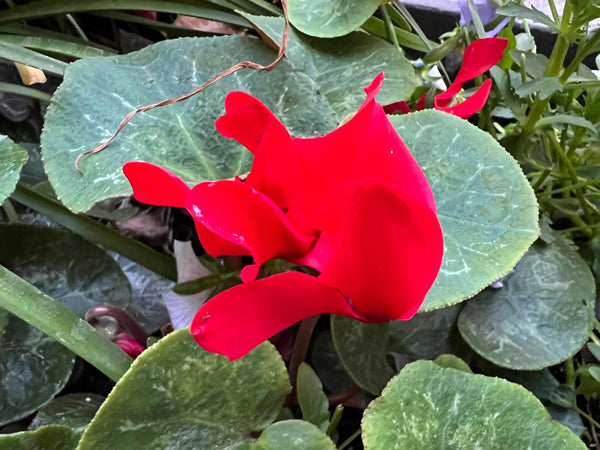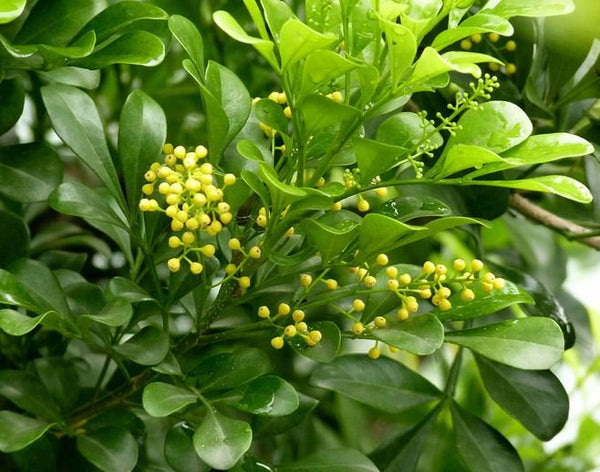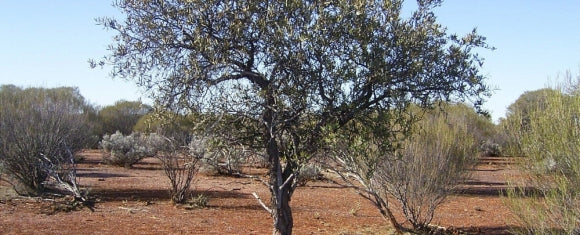
10 ml
The origin of the word cyclamen is the Greek word kyklos, meaning a circle and her petals open as elegant brightly colored butterfly wings, floating in tandem, circling the stem. The Chinese artist Zhang Daqian a painter from the 20th century would make fantastical translations of a flower’s scientific name into a Chinese name based on pronunciation. The cyclamen’s Chinese name is Xiankelai, which means ‘the guest comes from the fairyland,’ and indeed the energy of this absolute is ethereal.
Cyclamen gifts the ability to frame things and ideas in new contexts. It is powerfully freeing to see things outside calcified notions. In fact, transformative. Her second gift in this sequence is the ability to crystalize this information and anchor it in the material realm to grow.
One of the oddest aspects of being human is how we absorb information. Psychotherapist Barbra Shore address this in her fascinating essay ‘An Absurdist Pantomime’, she examines the way in which our thought processes shape the data that constitutes our perceived reality, including ourself and our surroundings:
“We have to make room for the possibility that our thought processes do not neutrally report on what is ‘out there’ in an ‘objective’ world. But rather, like the suppositions of theoretical physicist David Bohm, that our thought processes actively participate in forming our perceptions, our sense of meaning, our daily actions. Bohm suggests that ‘collective thought and knowledge have become so automated that we’re in large part controlled by them, with subsequent loss of authenticity, freedom and order.” Seen through this hypothesis, thought is not a fresh, direct perception but rather is the past—that which has already been thought—carried forward through memory into the present." 1
Our growth as a whole requires an interplay between habit and creativity. Without the ability to perceive in a new way, outside of calcified projections—creativity—no new habits would come into being; your nature would follow repetitive patterns and behave as if you were governed by non-evolutionary principles. Stagnation. On the flip side, without the stabilizing force of habit formation, your new ideas and perceptions could never take root and bare fruit, leading to a turbulent unproductive life.
This speaks to not only the mysteries of physical metamorphoses, but also the loveliest transmutations of the soul. This plant helps you know when it is time to anchor and when it is time to seek change in perception or physical circumstances.
At the most basic level—cyclamen helps you perceive where you are in your evolutionary cycle—aware or not, you are always at a certain stage in your life activates. There is always a beginning and to have a beginning you must have something truly new something that has not existed in your continuum before.
For many a fresh, direct perception, is what we call an epiphany. A sudden manifestation or perception of the essential nature or meaning of something. It is an intuitive grasp of reality through something, such as an event, often simple and striking. The second turn of the wheel is the incubation stage, here lovingly grow your new idea or life circumstance. This is followed by taking your fully formed concept and taking action to birth it into the world, this is where stabilization through habit formation comes into play.
One of the most amazing aspects of this process, is what you leave in your wake. Even though you are ready to move on to the next project, idea, circumstance, what you leave behind might be the ah-ha moment for someone else. In this way we as all of humanity link arms in our evolutionary cycle.
PART USED ~ Flowers
EXTRACTION METHOD ~ Absolute Extraction (Hexane Free)
ORIGIN ~ Turkey
NOTE CLASSIFICATION ~ Middle Note
(c) all rights reserved

![]()

......
1 Shore, Barbara. “An Absurdist Pantomime: The Collision of Violence, Innocence, and Pseudoinnocence.” In Psychology at the Threshold. Edited by Dennis Patrick Slattery and Lionel Corbett. Carpinteria, Calif.: Pacifica Graduate Institute Publications, 2010.



